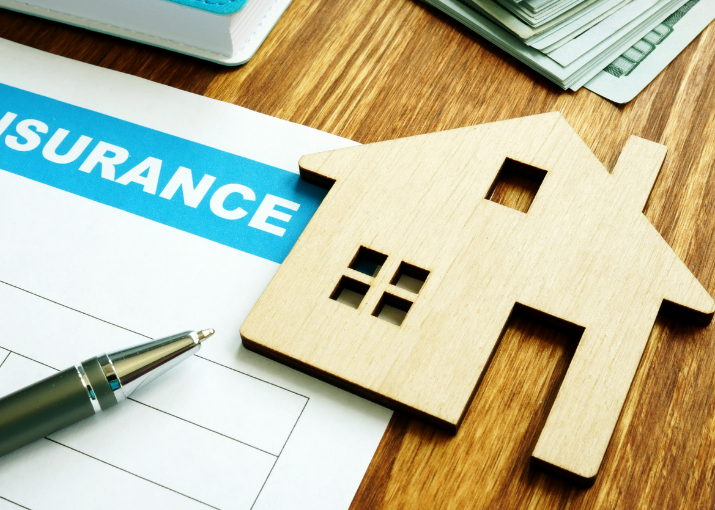What is a Home Insurance Adjusters?


If you’ve recently filed a home insurance claim, you may be wondering what a home insurance claims adjuster does. In essence, their role is to investigate the claim, assess the damage, and determine a fair settlement. If you’re currently navigating a home insurance claim, it’s important to prepare for the adjuster’s visit and maintain communication afterward to ensure the process runs smoothly. Understanding what to expect and how to manage this process can bring you peace of mind.
What is a home insurance claims adjuster?
A home insurance adjuster is responsible for assessing and determining the extent of damage or loss covered by a homeowner’s insurance policy. When a claim is filed, the insurance company assigns an adjuster to investigate the situation, who may be either an employee of the insurer or a contracted professional.
The adjuster’s duties include inspecting the property, evaluating the damage, and calculating the appropriate compensation or settlement that the insurance company should provide. They play a vital role in the claims process, ensuring that policyholders receive fair and accurate compensation for covered losses.
Before proceeding, it’s important to assess whether filing a claim is worthwhile, as an adjuster may deny a claim that doesn’t meet the necessary criteria. Additionally, your claims history can influence your future home insurance rates.
What is the difference between an independent adjuster and a public adjuster?
There are several types of claims adjusters. An independent adjuster is contracted by an insurance company to assess and investigate claims impartially, recommending a settlement based on their findings. These adjusters are utilized when the insurance provider opts to contract external help, though some companies may also have in-house adjusters assigned to claims.
On the other hand, public adjusters are hired directly by policyholders to advocate for their interests throughout the claims process. Like independent adjusters, they evaluate damage and suggest a settlement, but they also negotiate on behalf of the policyholder to reach an agreement with the insurance company. Homeowners who believe the independent adjuster’s assessment was inaccurate or unfair may seek a public adjuster for a second opinion.
What does a home insurance adjuster do?
When a homeowners insurance adjuster visits your home, their main role is to evaluate the damage reported in your claim. They will inspect the affected areas, likely taking photos and notes on visible damage. Additionally, they may assess nearby structures like gates or decks to gauge the extent of the damage. The adjuster may ask questions about how and when the damage occurred, as well as evaluate the structural integrity of your home to determine if any damage predated the reported incident.
The assessment typically lasts about one to two hours. Following the inspection, the adjuster will prepare a report detailing their findings and recommendations. While some adjusters may authorize a claim immediately, it’s more common for you to review the report and communicate with the insurance company to finalize the claim.
How to prepare for a home insurance adjuster’s visit
When you file a claim, your home insurance company will usually arrange for an adjuster to visit. Understanding what to expect can help you prepare. Here’s a step-by-step guide to getting ready for the adjuster’s visit:
- Document the Damage: Before the adjuster arrives, note the exact time and date of the incident, along with any other relevant details. While the adjuster will take their own photos, capturing your own images of the damage can be useful for your records.
- Gather Documents: Collect any documents that may support your claim. This can include witness statements and contact information, photos or videos of the damage, and receipts or estimates for repairs or for any items that were lost, stolen, or damaged.
- Be Present During the Visit: While it’s not mandatory to be home, it’s beneficial to be there to answer questions and ensure the adjuster doesn’t miss anything important. Having repair estimates ready can also help you compare with the adjuster’s findings.
- Inquire About Next Steps: Before the adjuster leaves, ask about the next steps in the process. Most states require insurance companies to respond to claims within a certain timeframe, so inquire how long it typically takes to hear back about your claim.
What to do after a home insurance claims adjuster’s visit

After the insurance adjuster leaves, you’ll likely have some “homework” to complete. It’s crucial to act promptly and respond to any requests to avoid delaying your claim payout.
- Submit Requested Documents: If the adjuster asks for paperwork or additional documents, fill out the forms and return them quickly. For instance, you might need to provide a receipt for recent roof repairs or heating system inspections.
- Stay Accessible: Make sure you’re available via phone, text, or email to receive updates about your claim. You may be contacted for further information, so keeping communication lines open is essential.
- Follow Up: Adjusters usually provide a timeline for the claims process, but this can vary based on individual claims. If you haven’t heard back in a while, consider reaching out to the adjuster to see if they need more information from you.
How much does a home insurance adjuster cost?
Typically, a home adjuster is employed by the insurance company and does not charge you a fee, as their payment comes from the insurer.
If you decide to hire a public adjuster, they usually charge a percentage of the claim—generally between 10% to 15%—rather than an upfront fee. For example, if your home was damaged in a fire and you negotiate a settlement of $300,000 for rebuilding, the public adjuster could receive a fee of $30,000 to $45,000. While this amount may seem high, it can be worthwhile if you’re struggling to secure a fair settlement from your insurance company.
How to dispute an insurance claim
As noted, there are times when hiring your own public adjuster is advisable. This is often the case if you disagree with your insurance carrier’s offer or if your claim has been denied. You are not obligated to accept an offer you find unsatisfactory; you can choose to dispute it instead.
To dispute a home insurance claim, begin by contacting your insurance company’s customer service for a written explanation of how they determined their offer. If you opt to hire a public adjuster, share this information with them so they can build a strong case on your behalf.
A public adjuster can provide a second, more impartial opinion, which may aid you in negotiating a better settlement. Keep in mind that they will need time to investigate the claim and compile a response based on their professional findings to help you secure a more favorable payout.
Tips when dealing with a home insurance adjuster
Understanding how to effectively engage with a property claims adjuster can help you maximize your settlement. Here are three tips:
- Document Conversations: It’s easy to forget details from your discussions with the adjuster. While they will take their own notes, recording key points can help you remember what was said. If you plan to record the conversation, make sure to inform the adjuster in advance.
- Don’t Rush to Sign Documents: If the adjuster asks you to sign any paperwork, ensure you fully understand the contents. If you need time to review the documents or consult someone else, communicate that to the adjuster and let them know when you plan to respond.
- Consider Hiring a Public Adjuster: If negotiations seem to stall or if you suspect your insurance company is acting unfairly, hiring a public adjuster or an attorney can provide reassurance. They can advocate on your behalf and help keep the claims process moving forward.








